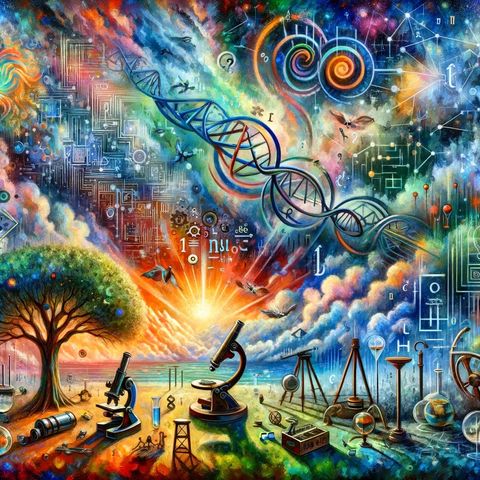This Moment in Science History for 11-16-2024

Download and listen anywhere
Download your favorite episodes and enjoy them, wherever you are! Sign up or log in now to access offline listening.
This Moment in Science History for 11-16-2024
This is an automatically generated transcript. Please note that complete accuracy is not guaranteed.
Description
On November 16, 1938, a remarkable discovery was made in the field of nuclear physics that would change the course of history. On this day, German chemists Otto Hahn and...
show moreHahn and Strassmann were studying the effects of bombarding uranium with neutrons, expecting to create heavier elements. However, to their surprise, they found that the uranium had split into two lighter elements, barium and krypton. This unexpected result puzzled the scientists, as it contradicted the prevailing belief that atomic nuclei could not be broken apart.
Lise Meitner, who had collaborated with Hahn for years but was forced to flee Nazi Germany due to her Jewish heritage, received a letter from Hahn describing the perplexing results. Meitner and her nephew, Otto Frisch, worked on interpreting the data and came to a stunning realization: the uranium nucleus had indeed split in two, releasing a tremendous amount of energy in the process. They coined the term "nuclear fission" to describe this phenomenon.
The discovery of nuclear fission had profound implications for both science and world history. It paved the way for the development of nuclear power as a new energy source, promising to revolutionize the way we generate electricity. However, it also opened the door to the creation of nuclear weapons, which would forever change the nature of warfare and international relations.
The work of Hahn, Strassmann, and Meitner was recognized as a major milestone in science. In 1944, Otto Hahn was awarded the Nobel Prize in Chemistry for his role in the discovery of nuclear fission. Sadly, Lise Meitner's contributions were overlooked at the time, despite her crucial role in interpreting the experimental results and providing the theoretical explanation for the phenomenon.
Today, November 16 is remembered as a pivotal moment in the history of science, marking the beginning of the atomic age and the unleashing of the power of the atom. The discovery of nuclear fission continues to shape our world, from the ongoing debate over nuclear energy to the global efforts to prevent the spread of nuclear weapons. It serves as a reminder of the incredible potential of scientific research to transform our understanding of the universe and the responsibility that comes with such knowledge.
Information
| Author | QP-2 |
| Organization | William Corbin |
| Website | - |
| Tags |
Copyright 2024 - Spreaker Inc. an iHeartMedia Company

Comments